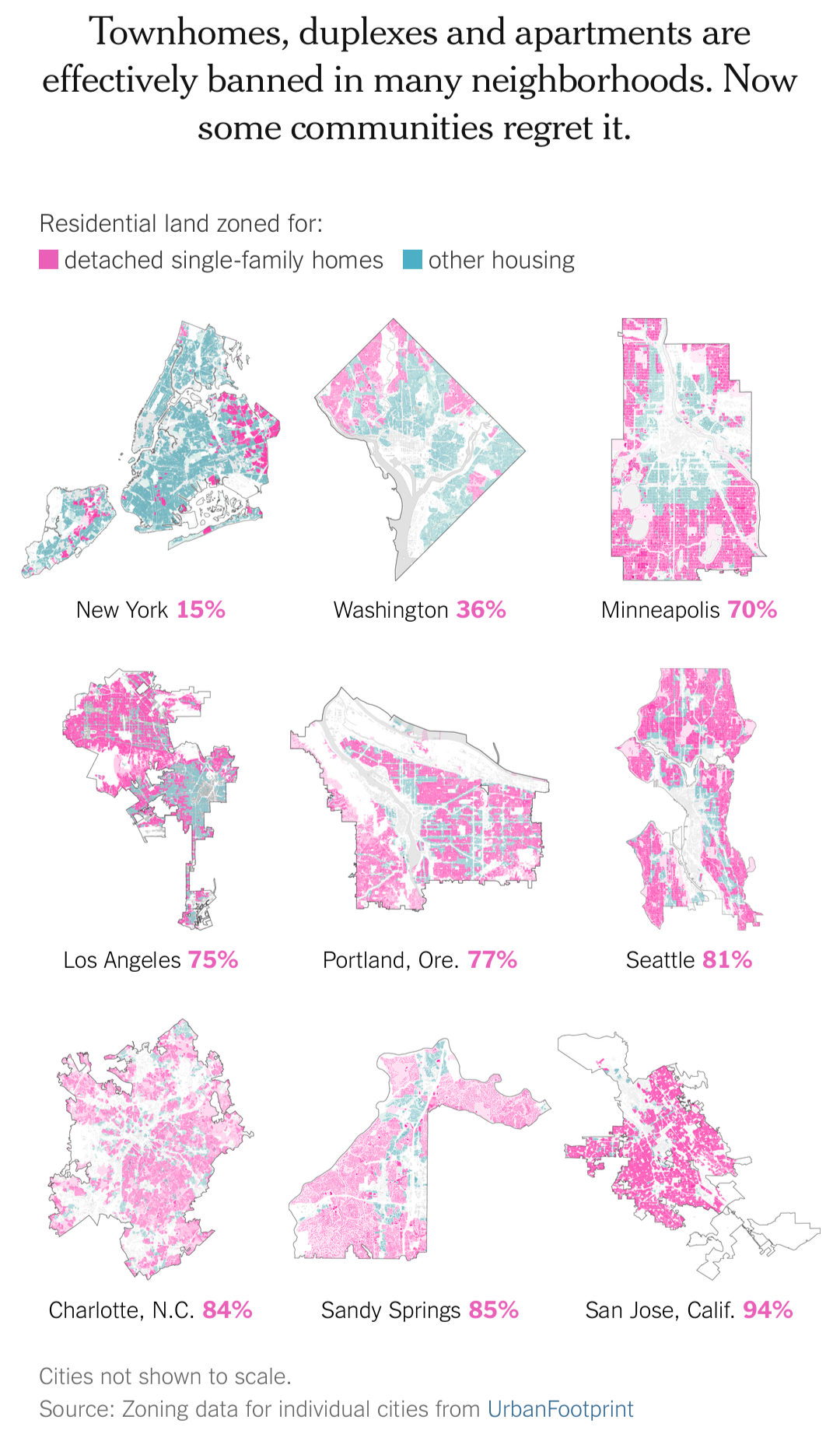

The “we have enough homes already” is a common (and unfortunately very harmful) myth.
A couple good in-depth videos on the topic:
The gist of it is that statistics on how many vacant homes exist are highly misleading, for two main reasons:
- Many of the homes are not where the demand is. A vacant home in St Louis does nothing to help with a housing shortage in NYC. People want to live in NYC because that’s where the jobs are. A house in St Louis isn’t worth much if you can’t find work there. And statistics consistently show that the most expensive cities have the lowest vacancy rates.
- A lot of the homes that are counted as “vacant” aren’t actually just free for the taking like “vacant” would have you believe. In these statistics, “vacant” can mean: 1) a unit that is between tenants, 2) a unit that just finished being built and is awaiting its tenant’s move-in, 3) a unit occupied by someone who doesn’t legally state it as their primary residence (e.g., student housing where the student still lists their parents’ home as their primary address), 4) a unit in horrible disrepair that is unfit for occupation, etc.
Add to this the fact that high vacancy rates are GOOD for you, as it means landlords and sellers have a credible threat of vacancy, meaning they can’t demand ludicrous prices. Reducing vacancy rates is an incredibly anti-consumer, pro-landlord move.





NYC itself doesn’t have much (although it still has some! see image below) low-density zoning, but their suburbs sure do. The city itself also has a lot of other bureaucratic barriers to development that result in it having abysmal housing construction rates.
As for vacancy, yes, the threat of not being able to sell is what stops builders from building too much. For example, it’s the reason no one’s even trying to build the Burj Khalifa in Bakersfield. But if you make it legal and reasonably easy to build, yes, people will build.
Perhaps Tokyo is the best example. Biggest city in the world, and yet it’s actually relatively affordable, thanks largely to good land use policy:
I think the key idea is to not have government bureaucrats or existing homeowners or landlords decide whether there’s “enough” housing, but rather let builders determine if there’s unmet demand. If there is unmet demand, they will build if you let them. If there truly is enough housing in a certain city, then you don’t need to tell builders not to build – they’ll simply stop building if they sense there’s not enough demand for it.